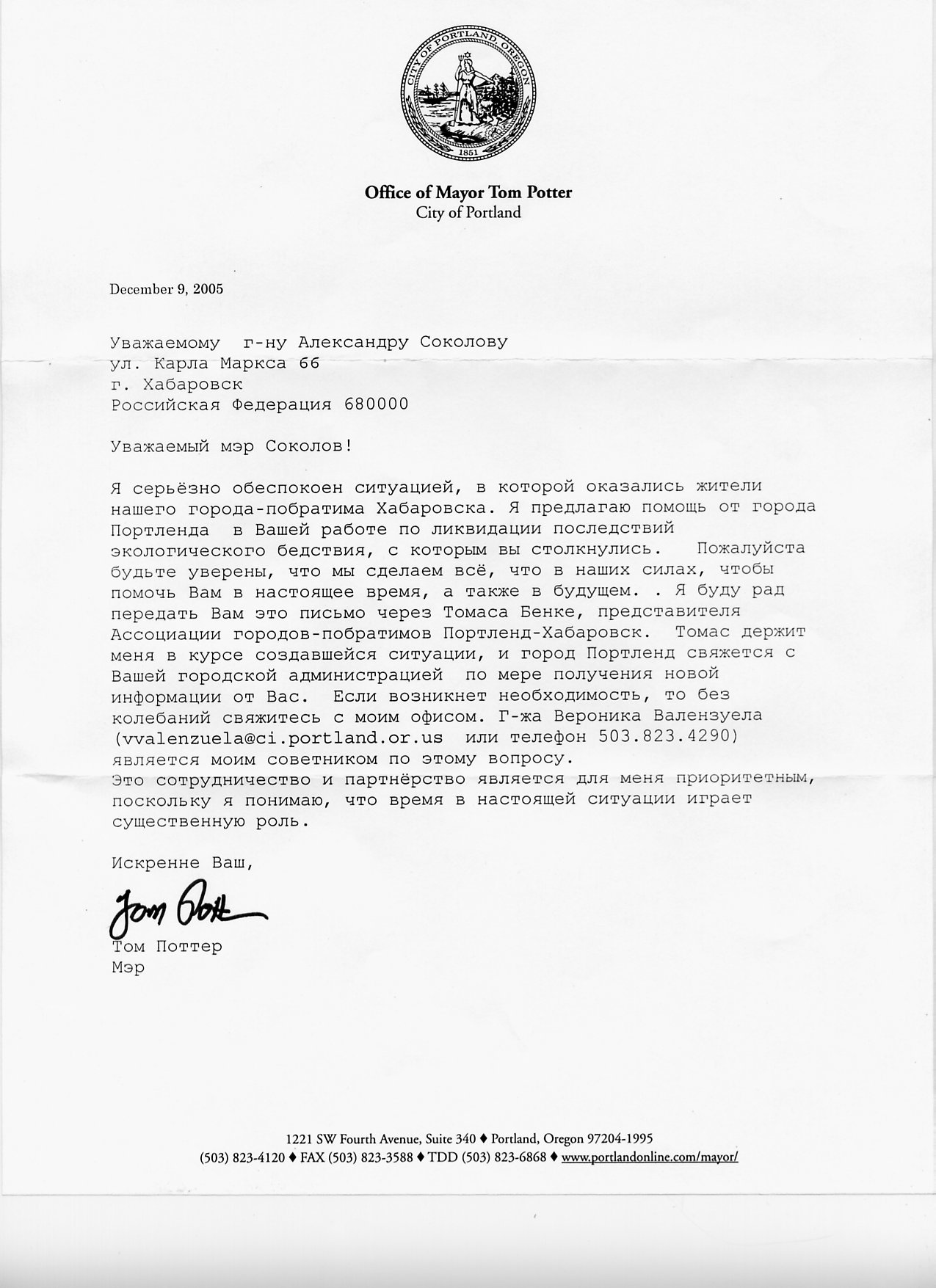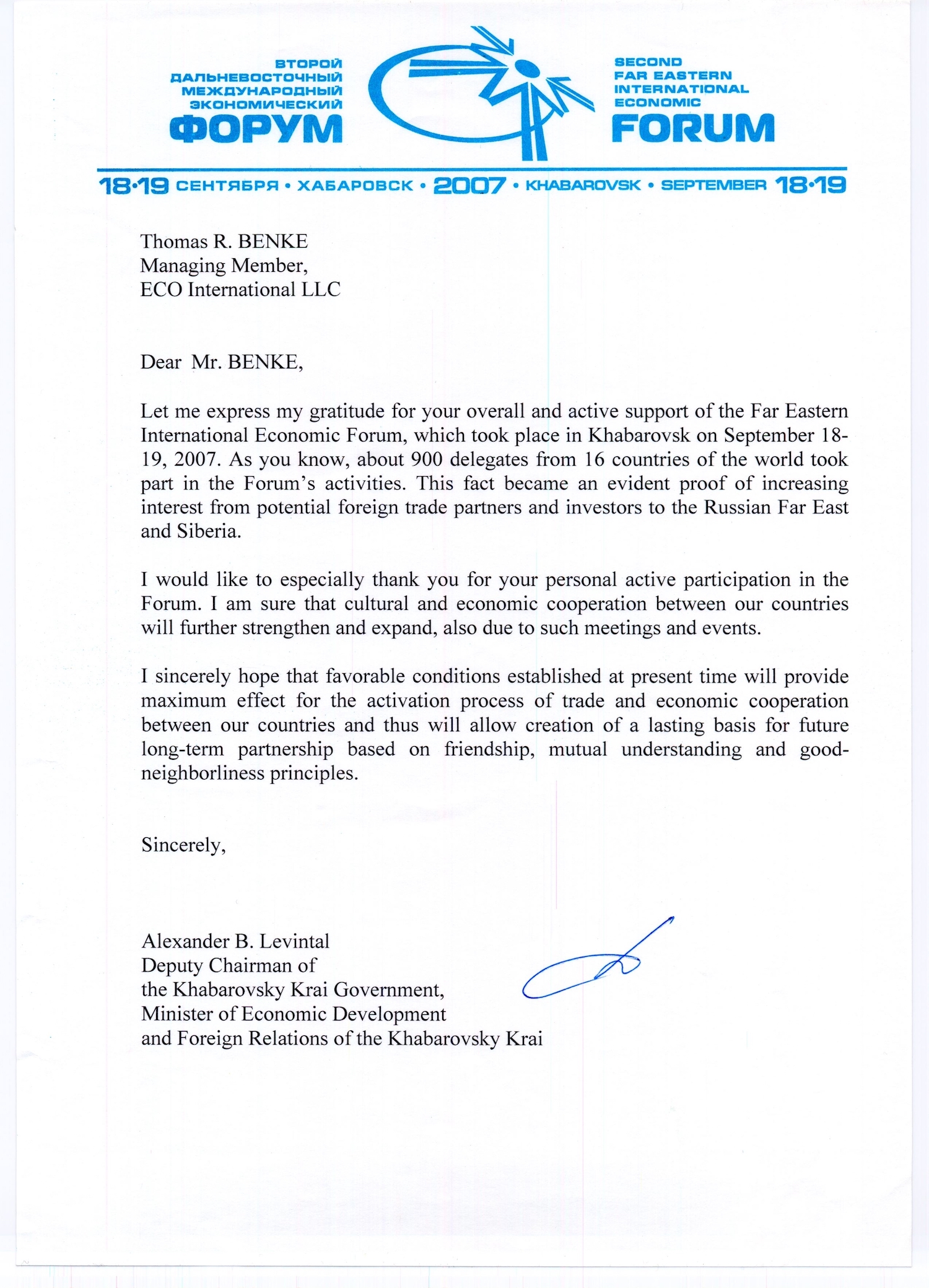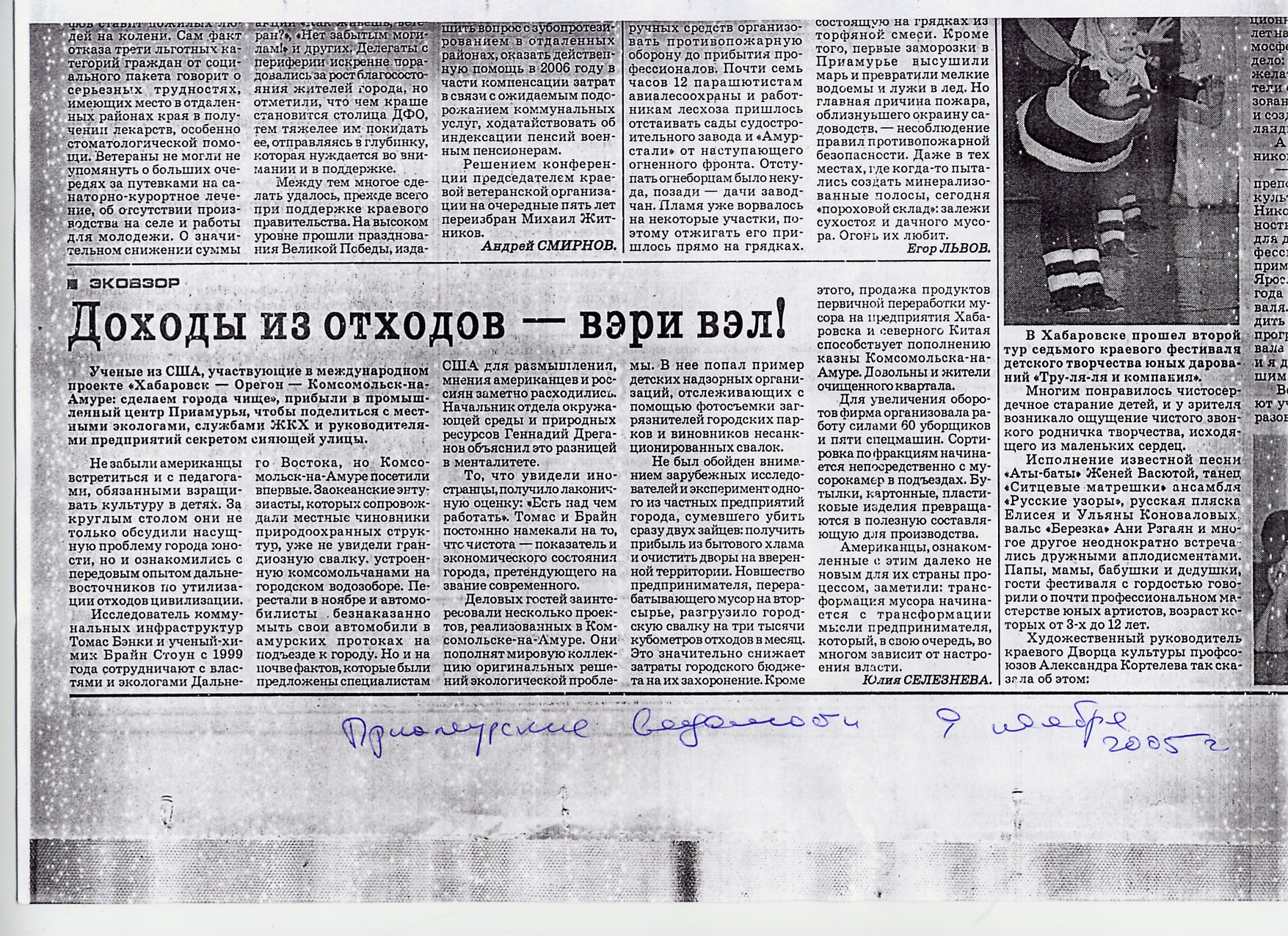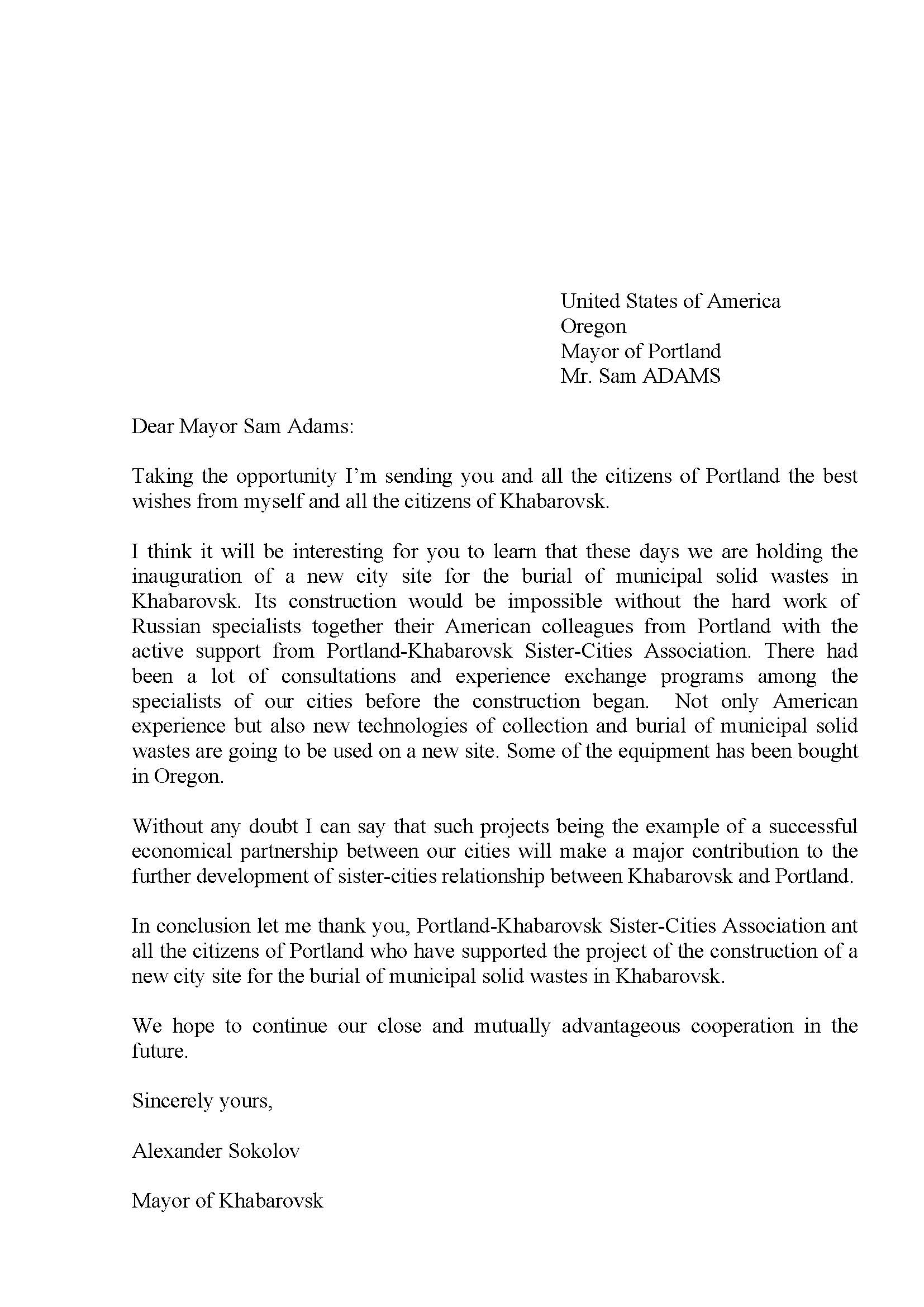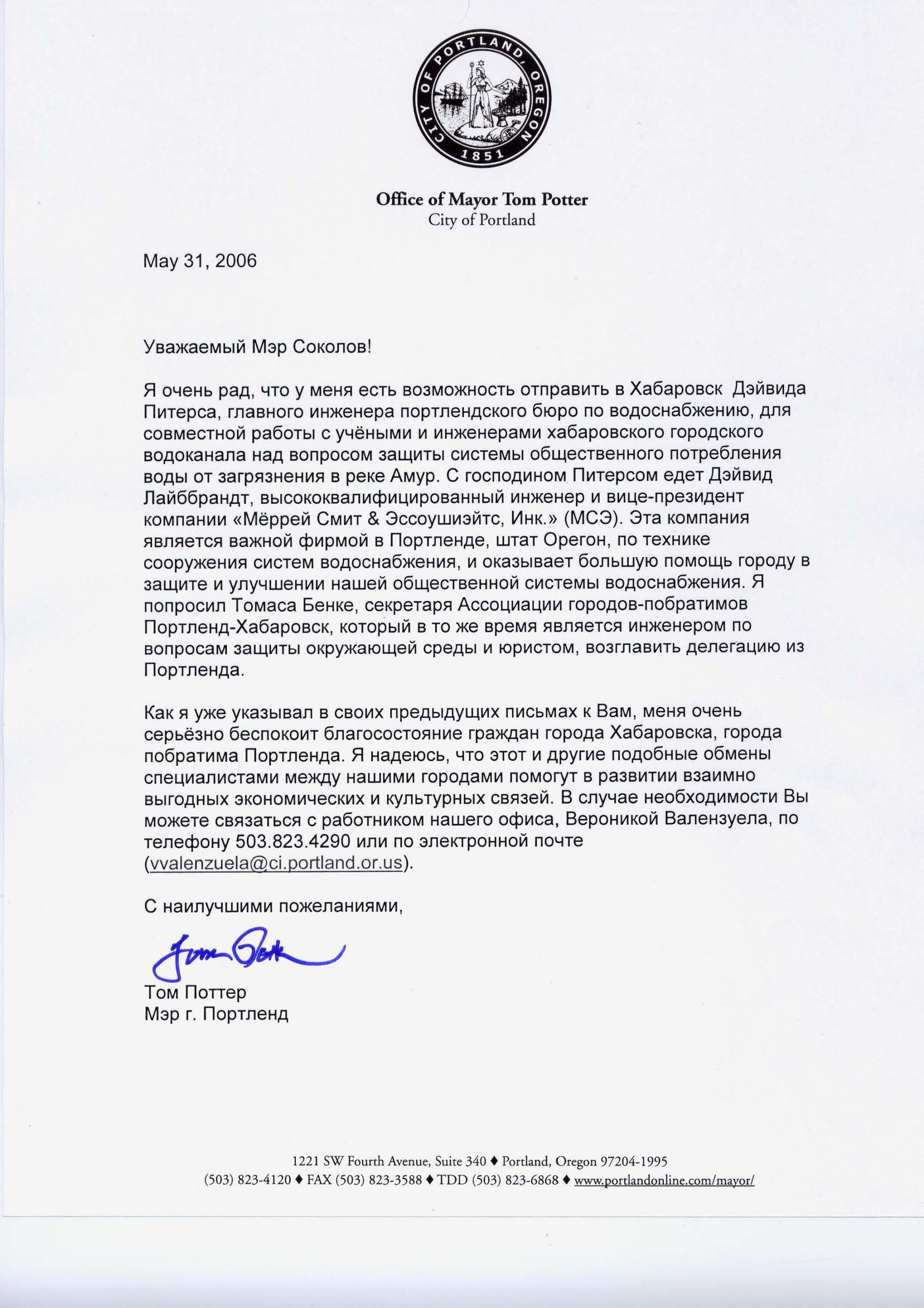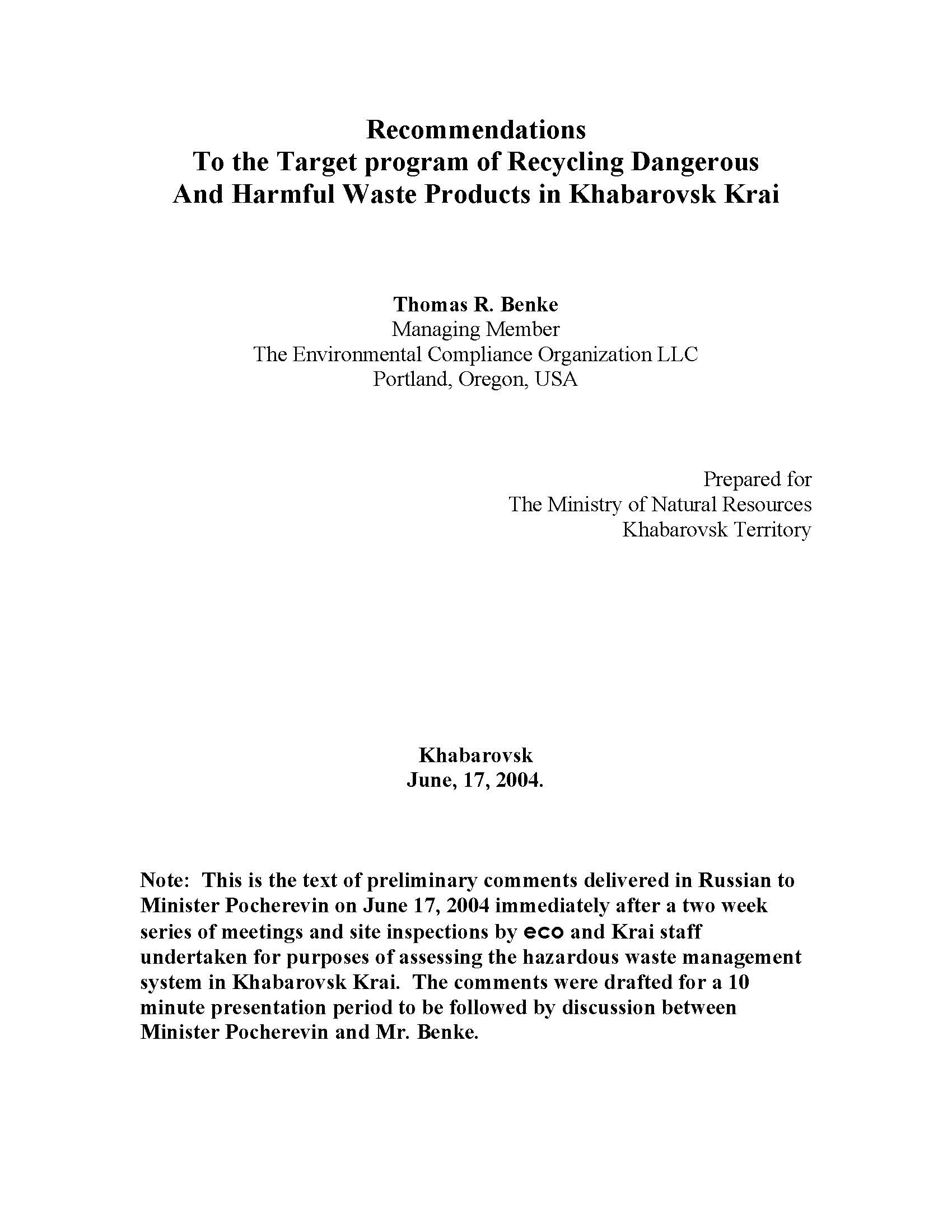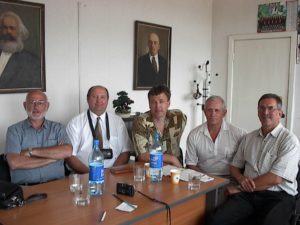

ECO International has its origins in environmental projects implemented on behalf of the Portland Khabarovsk Sister City Association in Khabarovsk, Russia beginning in December 1999 with rehabilitation of the city’s municipal garbage system. A similar series of projects began in 2004 to address issues with hazardous waste management. In 2005, when a chemical spill to the Amur River threatened Khabarovsk’s drinking water supply, ECO International was asked to participate in Khabarovsk’s emergency response as a trusted advisor to Khabarovsk Vodokanal.
ECO International берет свое начало в экологических проектах, реализуемых от имени Ассоциации городов-побратимов Портленда Хабаровска в Хабаровске, Россия, начиная с декабря 1999 г. с восстановления городской системы сбора мусора. Аналогичная серия проектов была начата в 2004 году, чтобы решить проблемы обращения с опасными отходами. В 2005 году, когда утечка химикатов в реку Амур поставила под угрозу снабжение питьевой водой Хабаровска, ECO International попросили принять участие в ликвидации последствий чрезвычайных ситуаций в Хабаровске в качестве доверенного советника Хабаровского Водоканала.
ECO International 起源于代表俄罗斯哈巴罗夫斯克的波特兰哈巴罗夫斯克姊妹城市协会实施的环境项目,该项目始于1999年12月,旨在修复该市的市政垃圾系统。 2004年开始了一系列类似的项目,以解决危险废物管理方面的问题。 2005年,当化学品泄漏至阿穆尔河威胁到哈巴罗夫斯克的饮用水供应时,ECO International 被要求作为哈巴罗夫斯克·沃多卡纳尔的值得信赖的顾问参加哈巴罗夫斯克的应急响应。
Solid Waste Management Initiative
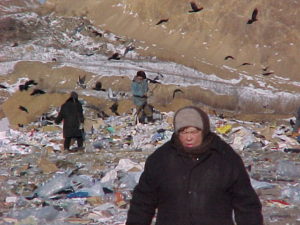 In December 1999, less than a decade after the dissolution of the Soviet Union, the Portland Khabarovsk Sister City Association dispatched ECO International’s founder and Executive Director Thomas Benke to confer with the Khabarovsk City Administration about environmental issues. The City of Khabarovsk identified its overwhelmed municipal garbage system as a good starting point for collaboration. A multi-year, multi-phase series of exchanges of Portland and Khabarovsk municipal officials ensued, all coordinated and lead by Benke (as PKSCA Director of Environmental Programs) with funding by the U.S. Information Agency (through Sister Cities International and the Portland State University Free Market Business Development Institute) and the U.S. Agency for International Development (through Ecolinks and the Foundation for Russian American Economic Cooperation). “In-Kind”, “Matching” and/or “Cost Share” contributions of participating organizations and individuals leveraged cash funding by more than 3:1. In 2011, Khabarovsk’s mayor wrote to Portland’s mayor about the “inauguration of a new city site for the burial of municipal solid wastes in Khabarovsk.” Mayor Sokolov added that “Its construction would be impossible without the hard work of Russian specialists together with their American colleagues from Portland with the active support from Portland-Khabarovsk Sister City Association.”
In December 1999, less than a decade after the dissolution of the Soviet Union, the Portland Khabarovsk Sister City Association dispatched ECO International’s founder and Executive Director Thomas Benke to confer with the Khabarovsk City Administration about environmental issues. The City of Khabarovsk identified its overwhelmed municipal garbage system as a good starting point for collaboration. A multi-year, multi-phase series of exchanges of Portland and Khabarovsk municipal officials ensued, all coordinated and lead by Benke (as PKSCA Director of Environmental Programs) with funding by the U.S. Information Agency (through Sister Cities International and the Portland State University Free Market Business Development Institute) and the U.S. Agency for International Development (through Ecolinks and the Foundation for Russian American Economic Cooperation). “In-Kind”, “Matching” and/or “Cost Share” contributions of participating organizations and individuals leveraged cash funding by more than 3:1. In 2011, Khabarovsk’s mayor wrote to Portland’s mayor about the “inauguration of a new city site for the burial of municipal solid wastes in Khabarovsk.” Mayor Sokolov added that “Its construction would be impossible without the hard work of Russian specialists together with their American colleagues from Portland with the active support from Portland-Khabarovsk Sister City Association.”
Hazardous Waste Management Initiative
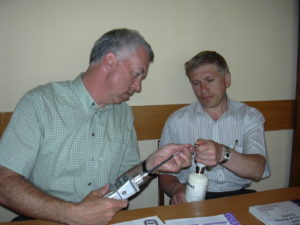 In June 2004 ECO International was asked by the Khabarovsk Krai Ministry of Natural Resources to survey and report on hazardous waste management in the region. The two week survey culminated in a report to Minister Pocherevin in which ECO International recommended that the Krai develop a market based system for the management of hazardous waste and that it begin immediately to mitigate the adverse effects of hazardous waste improperly discarded in the past.
In June 2004 ECO International was asked by the Khabarovsk Krai Ministry of Natural Resources to survey and report on hazardous waste management in the region. The two week survey culminated in a report to Minister Pocherevin in which ECO International recommended that the Krai develop a market based system for the management of hazardous waste and that it begin immediately to mitigate the adverse effects of hazardous waste improperly discarded in the past.
Clean Water Initiative
 When a Chinese chemical plant exploded November 13, 2005 it sent a 90-mile plume (spot, or пятно as the Russians called it) of toxic substances downriver to the Amur River, the primary drinking water source of Khabarovsk, Russia. By December 9, 2005, Portland’s Mayor sent word to Khabarovsk’s Mayor that the City of Portland would send a team of experts headed by ECO International to help protect the citizens of Khabarovsk. The Clean Water Initiative was carried out under the auspices of the Portland Khabarovsk Sister City Association with funding from the Trust for Mutual Understanding and several other public and private donors. The City of Portland Water Bureau donated a portable Gas Chromatograph with Photo- and Flame-Ionizing Detectors. ECO International instructed Khabarovsk Vodokanal on the GC/PID+FID’s usefulness in obtaining real time (15 minutes or less) assessments of water quality throughout the city system. In the months that followed ECO International sent a team of specialists to Khabarovsk to collaborate on monitoring and assessing impacts to the Amur River as the “spot” passed Khabarovsk. Two delegations of scientists and engineers traveled to the US from Khabarovsk to consult with American specialists. Within a year, Khabarovsk started planning to install a state-of-the-art activated carbon filtration system at its drinking water plant, designed by Portland engineers utilizing US filtration technology.
When a Chinese chemical plant exploded November 13, 2005 it sent a 90-mile plume (spot, or пятно as the Russians called it) of toxic substances downriver to the Amur River, the primary drinking water source of Khabarovsk, Russia. By December 9, 2005, Portland’s Mayor sent word to Khabarovsk’s Mayor that the City of Portland would send a team of experts headed by ECO International to help protect the citizens of Khabarovsk. The Clean Water Initiative was carried out under the auspices of the Portland Khabarovsk Sister City Association with funding from the Trust for Mutual Understanding and several other public and private donors. The City of Portland Water Bureau donated a portable Gas Chromatograph with Photo- and Flame-Ionizing Detectors. ECO International instructed Khabarovsk Vodokanal on the GC/PID+FID’s usefulness in obtaining real time (15 minutes or less) assessments of water quality throughout the city system. In the months that followed ECO International sent a team of specialists to Khabarovsk to collaborate on monitoring and assessing impacts to the Amur River as the “spot” passed Khabarovsk. Two delegations of scientists and engineers traveled to the US from Khabarovsk to consult with American specialists. Within a year, Khabarovsk started planning to install a state-of-the-art activated carbon filtration system at its drinking water plant, designed by Portland engineers utilizing US filtration technology.













